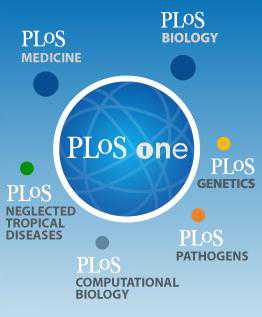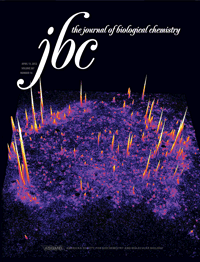Neuro-Oncology:发现脑癌的非手术性测试
2012-04-20 mumu 生物谷
波士顿的一个研究团队指出,在脑癌诊断与监测方法方面取得了突破,不进行手术就能对脑肿瘤进行可靠的诊断与监测。以前,没有一种准确的非手术测试用于检测脑肿瘤,脑肿瘤进展或治疗反应的监测方法也不可靠。这项先导研究的结果发表在在线版Neuro-Oncology上。 这种测试的潜力令人兴奋不已,它可易化脑肿瘤的检测与监测过程,在用于临床之前,需要更深入地研究与发展,可以肯定的是,它对于某些病人特别有价值,这
波士顿的一个研究团队指出,在脑癌诊断与监测方法方面取得了突破,不进行手术就能对脑肿瘤进行可靠的诊断与监测。以前,没有一种准确的非手术测试用于检测脑肿瘤,脑肿瘤进展或治疗反应的监测方法也不可靠。这项先导研究的结果发表在在线版Neuro-Oncology上。
这种测试的潜力令人兴奋不已,它可易化脑肿瘤的检测与监测过程,在用于临床之前,需要更深入地研究与发展,可以肯定的是,它对于某些病人特别有价值,这些病人就是因为肿瘤大小、肿瘤位置或当前医疗条件而不能手术的患者。
此研究对118例不同类型脑肿瘤患者进行了探讨,研究表明,脑脊液的microRNA概况可以用来确定恶性胶质瘤的存在,恶性胶质瘤是最常见的致命性脑肿瘤。这个测试利用的是microRNA,这是一种为各种疾病提供生物标志的微小RNA分子,其体液中的水平可以简单廉价地准确测量。同样的过程可以用于检测癌症的存在,该癌症始发于身体其他部位并扩散至大脑,此外,这个过程也可以用来监测治疗中的肿瘤。
关于此测试的专利正在申请中,此研究由NIH项目([R01CA138734-01A1, K08CA124804, and ARRA 3P30CA023100-25S8])、Sontag基金会与James S. McDonnell基金会资助。

doi:10.1093/neuonc/nos074
PMC:
PMID:
MicroRNAs in cerebrospinal fluid identify glioblastoma and metastatic brain cancers and reflect disease activity
Nadiya M. Teplyuk, Brit Mollenhauer, Galina Gabriely, Alf Giese, Ella Kim,Michael Smolsky, Ryan Y. Kim, Marlon G. Saria, Sandra Pastorino,Santosh Kesari and Anna M. Krichevsky
An accurate, nonsurgical diagnostic test for brain tumors is currently unavailable, and the methods of monitoring disease progression are not fully reliable. MicroRNA profiling of biological fluids has recently emerged as a diagnostic tool for several pathologic conditions. Here we tested whether microRNA profiling of cerebrospinal fluid (CSF) enables detection of glioblastoma, discrimination between glioblastoma and metastatic brain tumors, and reflects disease activity. We determined CSF levels of several cancer-associated microRNAs for 118 patients diagnosed with different types of brain cancers and nonneoplastic neuropathologies by quantitative reverse transcription PCR analysis. The levels of miR-10b and miR-21 are found significantly increased in the CSF of patients with glioblastoma and brain metastasis of breast and lung cancer, compared with tumors in remission and a variety of nonneoplastic conditions. Members of the miR-200 family are highly elevated in the CSF of patients with brain metastases but not with any other pathologic conditions, allowing discrimination between glioblastoma and metastatic brain tumors. Quantification of as few as 7 microRNAs in CSF enables differential recognition of glioblastoma and metastatic brain cancer using computational machine learning tools (Support Vector Machine) with high accuracy (91%-99%) on a test set of samples. Furthermore, we show that disease activity and treatment response can be monitored by longitudinal microRNA profiles in the CSF of glioblastoma and non-small cell lung carcinoma patients. This study demonstrates that microRNA-based detection of brain malignancies can be reliably performed and that microRNAs in CSF can serve as biomarkers of treatment response in brain cancers.
本网站所有内容来源注明为“梅斯医学”或“MedSci原创”的文字、图片和音视频资料,版权均属于梅斯医学所有。非经授权,任何媒体、网站或个人不得转载,授权转载时须注明来源为“梅斯医学”。其它来源的文章系转载文章,或“梅斯号”自媒体发布的文章,仅系出于传递更多信息之目的,本站仅负责审核内容合规,其内容不代表本站立场,本站不负责内容的准确性和版权。如果存在侵权、或不希望被转载的媒体或个人可与我们联系,我们将立即进行删除处理。
在此留言














#Oncology#
37
#Oncol#
36
#脑癌#
36